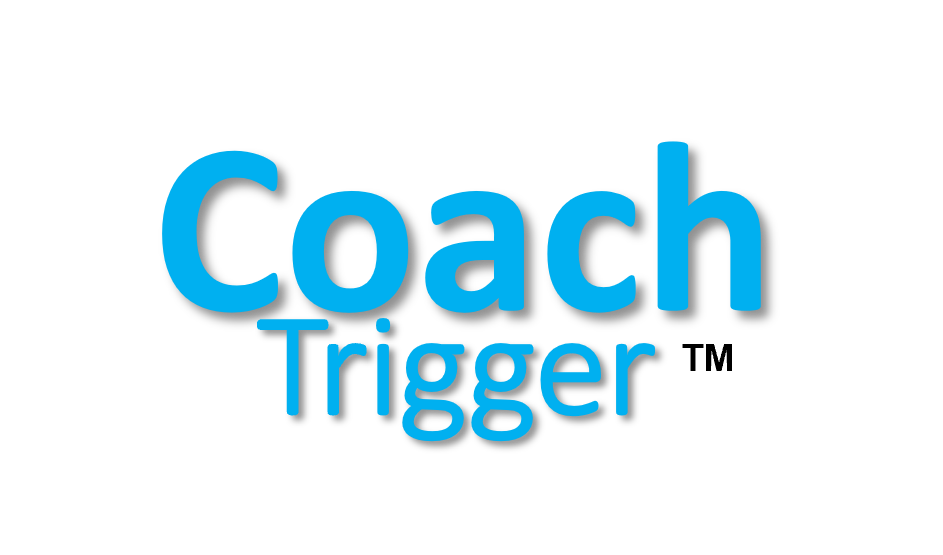How do you qualify as a business consultant?

Did you know that the consulting industry is projected to be worth over $343 billion by 2025? With businesses of all sizes relying on the expertise of consultants to drive growth and navigate complex challenges, the demand for qualified business consultants is increasing. If you’re passionate about helping organizations succeed and want to embark on a rewarding career in business consulting, it’s essential to understand the qualifications required to join this thriving industry.
Key Takeaways:
- To qualify as a business consultant, you need the right education, relevant experience, and essential skills.
- A business consultant plays a crucial role in helping organizations overcome challenges and achieve their desired outcomes.
- Earning a bachelor’s degree in business administration or a relevant field is a solid foundation for a consulting career.
- Seek advanced degrees, certifications, and continuous learning opportunities to enhance your consulting qualifications.
- Developing skills in data analysis, problem-solving, communication, and organization is vital for success as a consultant.
The Role and Impact of a Business Consultant
A business consultant plays a crucial role in helping organizations identify and overcome challenges and achieve their desired outcomes. They provide expert advice, guidance, and solutions to improve business operations, increase efficiency, and drive growth. The impact of a business consultant can be transformative, leading to improved profitability, increased market share, and long-term success for their clients.
The Role of a Business Consultant
A business consultant takes on multiple roles to assist organizations in achieving their goals. These roles include:
- Analyst: A consultant conducts thorough analyses of a company’s operations, identifying areas of improvement and potential challenges.
- Strategist: They develop effective strategies and action plans to address identified issues and drive growth.
- Advisor: Consultants provide expert advice and guidance to help organizations make informed decisions.
- Implementer: They assist in implementing recommended changes, ensuring effective execution and smooth transition.
- Facilitator: Consultants facilitate communication and collaboration among different teams and stakeholders, fostering a cohesive working environment.
- Mentor: They offer mentorship and professional development opportunities to empower clients and their employees.
The Impact of a Business Consultant
A business consultant’s impact goes beyond providing advice and generating recommendations. Their expertise can lead to several significant benefits for organizations:
- Increased Efficiency: Consultants identify bottlenecks and inefficiencies, implementing solutions that streamline processes, enabling organizations to work more effectively.
- Improved Profitability: By optimizing operations, reducing costs, and identifying new revenue streams, consultants help improve the financial health of businesses.
- Enhanced Market Position: Consultants develop strategies that differentiate organizations from competitors, expanding their market share and boosting their competitive advantage.
- Organizational Transformation: Through their expertise, consultants can instigate organizational change, creating a culture of innovation, adaptability, and continuous improvement.
- Risk Mitigation: Consultants help identify and mitigate potential risks, allowing organizations to make proactive decisions and respond effectively to unforeseen challenges.
| Impact Area | Benefits |
|---|---|
| Efficiency | Increased productivity and faster processes |
| Profitability | Reduced costs and increased revenue |
| Market Position | Expanded market share and competitive advantage |
| Transformation | Cultivating a culture of innovation and adaptability |
| Risk Mitigation | Identification and proactive management of risks |
As organizations increasingly recognize the value business consultants bring, their demand continues to grow. Through their expertise and guidance, consultants can make a lasting impact on the success and growth of businesses.
Educational Pathways to Becoming a Business Consultant
To become a business consultant, it is important to pursue the right educational pathway. A combination of formal education, advanced degrees, certifications, and continuous professional development can help you build the knowledge and skills necessary to excel in the field of business consulting.
Bachelor’s Degree in Business Administration or Relevant Field
Obtaining a bachelor’s degree in business administration or a relevant field is an excellent starting point for aspiring business consultants. This degree provides a solid foundation of business knowledge and equips you with valuable skills in areas such as strategic planning, organizational behavior, finance, marketing, and project management. With a bachelor’s degree, you gain a comprehensive understanding of the business landscape, which will support your ability to assess organizational challenges, identify opportunities, and propose effective solutions as a consultant. Some recommended degrees for aspiring business consultants include:
- Bachelor of Business Administration (BBA)
- Bachelor of Science in Business Management
- Bachelor of Economics
- Bachelor of Commerce
These degrees offer a range of courses that cover core business concepts, leadership skills, and analytical thinking, which are all essential for success in the consulting industry.
Advanced Degrees and Certifications
While a bachelor’s degree can provide a solid foundation, obtaining advanced degrees or certifications can further enhance your qualifications and open up more opportunities in the consulting field. Consider pursuing the following options:
- Master of Business Administration (MBA): An MBA is highly regarded in the business world and can give you a competitive edge as a business consultant. This advanced degree provides in-depth knowledge of business strategy, finance, marketing, operations, and leadership, enabling you to understand complex business issues and devise innovative solutions.
- Certifications for Consultants: There are various certifications available that specifically cater to the consulting profession. One notable certification is the Certified Management Consultant (CMC), which validates your consulting skills, professionalism, and commitment to ethical practices. Other certifications, such as Project Management Professional (PMP) or Six Sigma, can also be beneficial depending on your area of specialization.
Obtaining these advanced degrees and certifications demonstrates your expertise and commitment to professional development, making you more attractive to potential clients and employers in the consulting industry.
Continued Learning and Professional Development
Education and certification are not the end of the road when it comes to becoming a successful business consultant. The consulting industry is constantly evolving, and it is important to stay updated with the latest trends, strategies, and technologies. Continued learning through workshops, seminars, industry conferences, and online courses can help you enhance your knowledge, expand your skill set, and stay ahead of the competition. Engaging in professional development opportunities allows you to learn from industry experts, network with fellow consultants, and gain insights into new consulting methodologies and best practices.
| Benefits of Educational Pathways for Business Consultants |
|---|
| 1. Specialized Knowledge: Education provides a strong foundation of business principles and specialized knowledge in various areas, enabling consultants to offer strategic advice and solutions. |
| 2. Credibility: Advanced degrees and certifications enhance your credibility as a consultant, demonstrating your expertise and commitment to professionalism. |
| 3. Expanded Opportunities: A formal education and ongoing professional development can open up a wider range of job opportunities and higher-paying roles in the consulting industry. |
| 4. Continuous Learning: By staying updated with the latest industry trends and best practices, consultants can offer innovative and relevant solutions to their clients. |
Understanding Business Consultant Job Responsibilities
As a business consultant, your role encompasses a wide range of responsibilities that are crucial in guiding your clients towards success. By analyzing their requirements and understanding their business goals, you can provide valuable insights and strategic recommendations to optimize their operations and drive growth. Here are some of the key job responsibilities of a business consultant:
- Analyzing clients’ requirements and business goals: By thoroughly assessing your clients’ needs and objectives, you can gain a comprehensive understanding of their current challenges and develop targeted solutions.
- Performing comprehensive data analysis: Utilizing your strong analytical skills, you will conduct in-depth data analysis to identify operational inefficiencies and areas for improvement within the client’s organization.
- Formulating and executing business strategies: Based on your analysis, you will develop effective business strategies aligned with the client’s goals and recommend actionable steps for implementation.
- Presenting findings and recommendations to clients: Clear and concise communication is essential as you present your findings, insights, and strategic recommendations to clients, highlighting the potential benefits and outcomes.
- Assisting with the implementation of recommended changes: Your role extends beyond analysis and recommendations. You will actively support clients in the implementation of the recommended changes, providing guidance and expertise throughout the process.
- Monitoring implementation and gathering client feedback: After the implementation, you will closely monitor the progress and outcomes, seeking client feedback to ensure the effectiveness of the strategies and making any necessary adjustments.
These responsibilities require a combination of strong analytical, communication, and organizational skills to effectively address clients’ needs and drive positive outcomes. By fulfilling these duties, you can make a significant impact on your clients’ business performance and contribute to their long-term success.
| Responsibilities of a Business Consultant | Keywords |
|---|---|
| Analyzing clients’ requirements and business goals | clients’ requirements, business goals |
| Performing comprehensive data analysis | data analysis, operational inefficiencies |
| Formulating and executing business strategies | business strategies, implementation |
| Presenting findings and recommendations to clients | findings, recommendations |
| Assisting with the implementation of recommended changes | implementation, recommended changes |
| Monitoring implementation and gathering client feedback | monitoring, client feedback |
Core Skills and Expertise for Success as a Business Consultant
To excel as a business consultant, several core skills and expertise are essential. These skills form the foundation for effectively addressing clients’ needs and providing valuable consulting services. Developing proficiency in these areas will enable you to demonstrate your value as a consultant and drive positive outcomes for your clients.
Proficient Data Analysis and Problem-Solving Abilities
A key skill for business consultants is proficient data analysis and problem-solving abilities. This involves the ability to gather and analyze data, identify patterns and trends, and draw meaningful insights. By leveraging data, you can diagnose operational inefficiencies, uncover opportunities for improvement, and make data-driven recommendations to your clients. This skill allows you to provide targeted solutions that address your clients’ specific challenges and drive positive change.
Effective Communication, Presentation, and Public Speaking
Effective communication is vital for business consultants to convey complex ideas and information clearly and persuasively to clients. Whether presenting findings, recommendations, or progress updates, strong communication skills are essential for building trust and credibility with clients. Additionally, being able to deliver impactful presentations and engaging public speaking is crucial for influencing key stakeholders and executives, inspiring action and driving adoption of recommended strategies.
Organization Skills and Attention to Detail
As a business consultant, you will often juggle multiple clients and projects simultaneously. That’s why organization skills and attention to detail are crucial to effectively manage your workload and ensure project success. Strong organizational abilities help you prioritize tasks, stay on top of deadlines, and maintain a high level of productivity. Attention to detail ensures that you deliver high-quality work, free from errors or oversights, and maintain a strong professional reputation.
By cultivating these core skills and expertise, you can position yourself as a competent and reliable business consultant. These skills will not only enhance your value in the consulting industry but also enable you to serve your clients with excellence and achieve their desired outcomes.
Specializations Within the Consulting Industry
Within the consulting industry, there are various specializations that consultants can focus on. These specializations can range from strategy consulting and financial analysis to marketing consulting and technology implementation. Specializing in a particular area allows consultants to hone their expertise and provide targeted solutions to clients in specific industries or functional areas. By specializing, consultants can position themselves as industry experts and attract clients looking for specialized knowledge and skills.
For consultants, having a specialization can be a competitive advantage. It allows you to develop deep expertise in a specific area and become a go-to resource for clients in that industry. Specializing not only enhances your credibility but also helps you better understand the unique challenges and opportunities faced by businesses in that sector.
Building Relevant Experience in Consulting
Building relevant experience is crucial for aspiring business consultants who want to establish themselves in the field. By gaining practical experience through internships or entry-level positions at consulting firms, you can develop valuable skills and gain exposure to a variety of client projects.
Consulting internships provide an excellent opportunity to apply your knowledge in a real-world setting and learn from experienced professionals. During these internships, you can work on projects alongside seasoned consultants, contribute to problem-solving initiatives, and gain insight into the consulting process.
Gaining consulting experience through internships allows you to understand the unique challenges of different industries and functional areas. This exposure helps you develop a holistic perspective and enhances your ability to provide targeted and effective solutions to clients.
Another way to gain relevant experience is by volunteering for pro bono consulting projects. These projects allow you to work with nonprofit organizations or small businesses, providing valuable consulting services at no cost. These experiences not only help you build your portfolio but also allow you to make an impact and contribute to meaningful causes.
Building experience as a consultant doesn’t always require a formal consulting role. If you are currently employed, consider taking on consulting assignments within your organization. These assignments could involve process improvement initiatives, strategic planning projects, or even cross-functional collaborations. By taking on these additional responsibilities, you can demonstrate your consulting abilities and showcase the value you bring to the table.
Documenting your consulting experiences and successful projects can further strengthen your credibility as a consultant. Build a comprehensive portfolio that showcases your achievements, methodologies, and results. This portfolio can serve as a powerful tool when approaching potential clients or applying for consulting positions.
Navigating the Business Consulting Job Market
When it comes to finding employment in the business consulting industry, a strategic approach is key. Here are some tips to help you navigate the competitive consulting job market:
- Network with industry professionals: Building connections with professionals already working in the consulting field can provide valuable insights and potential job opportunities. Attend industry events, join professional associations, and leverage online platforms such as LinkedIn to expand your network.
- Create a strong professional portfolio: Stand out from the competition by showcasing your expertise and achievements. Develop a professional portfolio that includes case studies highlighting successful client engagements, client testimonials, and a well-crafted resume.
- Stay updated on job openings and industry trends: Regularly monitor job boards, company websites, and industry publications for new consulting job opportunities. Additionally, staying informed about industry trends and emerging areas of expertise can help you position yourself as a knowledgeable candidate.
By adopting these strategies, you can enhance your visibility, build valuable connections, and seize exciting job opportunities in the dynamic business consulting job market.
| Benefit | |
|---|---|
| Finding consulting jobs | Networking, staying informed, and showcasing your expertise can lead to job opportunities in the consulting industry. |
| Consulting job market | A competitive job market in the consulting industry requires a strategic approach to stand out and secure employment. |
| Business consultant employment | Employment opportunities for business consultants exist across various industries and sectors, with the potential for long-term growth. |
Starting Your Own Consulting Firm: A Strategic Roadmap
If you aspire to start your own consulting firm, developing a strategic roadmap is essential. By following a well-thought-out plan, you can lay the foundation for a successful consulting business. Here are three key steps to consider:
Developing a Business Model and Identifying Your Niche
The first step in starting a consulting firm is to develop a clear business model. Consider the type of consulting services you want to offer and define your target market. Identify the specific industry or functional area where you have expertise and can provide valuable insights. This will help you establish a niche within the consulting industry and position yourself as an expert in that area.
Establishing Your Presence and Attracting Clients
To attract clients to your consulting firm, establishing your online presence is crucial. Create a professional website that showcases your expertise, services, and client success stories. Leverage social media platforms to engage with your target audience and share valuable insights. Develop thought leadership content such as blog posts and videos to demonstrate your knowledge and build credibility. Implement effective SEO strategies to optimize your online visibility and attract organic traffic to your website.
Building a Network and Partnership Strategy
Building a strong network and forming strategic partnerships can greatly contribute to the growth of your consulting firm. Attend industry events, join professional associations, and network with other consultants and professionals in complementary fields. Collaborate with industry leaders and experts to expand your reach and gain access to potential clients. Cultivating mutually beneficial partnerships can help you generate referrals and establish your firm as a trusted advisor in the consulting industry.
Utilizing Consulting Platform with CoachTrigger
When it comes to streamlining and enhancing your consulting practice, utilizing a powerful consulting platform like CoachTrigger can make a significant difference. CoachTrigger offers a range of features designed to help you manage your client engagements more efficiently, ultimately delivering exceptional results for your clients.
With CoachTrigger, you can benefit from comprehensive client management tools that allow you to easily organize and track your client interactions. The platform also offers project tracking capabilities, ensuring that you stay on top of your consulting projects and meet your clients’ deadlines effectively.
Collaboration is a vital aspect of successful consulting, and CoachTrigger understands this. The platform offers collaboration tools that simplify communication and information-sharing with your clients, enabling you to work seamlessly with teams and stakeholders. With its user-friendly interface and robust features, CoachTrigger is an invaluable tool for business consultants seeking to elevate their practice and deliver outstanding results. Get started today!






